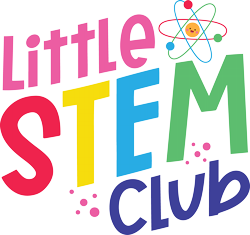The Early Advantage: Introducing STEM to Preschoolers
When it comes to nurturing young minds, the earlier, the better. That's why the introduction of STEM (Science, Technology, Engineering, and Mathematics) education to preschoolers has been gaining momentum.
While you might think that STEM subjects are too advanced for such young learners, there are numerous benefits to incorporating them into the preschool curriculum. Here's a closer look at why STEM for preschoolers is a smart move:
1. Building Strong Foundations:
Preschool is a time of immense cognitive and emotional development. Introducing STEM concepts at this stage helps lay the foundation for future learning. It nurtures curiosity, critical thinking, and problem-solving skills from a very early age. As these skills develop, they become invaluable tools throughout a child's academic journey and beyond.
2. Fostering a Love for Learning:
STEM activities often involve hands-on experiments and exploration, making learning fun and engaging. When children find joy in learning at a young age, they are more likely to develop a lifelong love for learning. The excitement of discovery and experimentation stays with them as they progress through school.
3. Encouraging Creativity:
Contrary to the misconception that STEM stifles creativity, it actually nurtures it. STEM education encourages children to think outside the box, ask questions, and come up with innovative solutions. It promotes creativity by challenging kids to explore and experiment, helping them understand that there is often more than one way to solve a problem.
4. Developing Critical Life Skills:
STEM education goes beyond academic knowledge. It teaches essential life skills such as patience, perseverance, and teamwork. Through collaborative projects and experiments, preschoolers learn how to work with others, communicate effectively, and share ideas—a skill set that is invaluable in every aspect of life.
5. Preparing for the Future:
In our increasingly technology-driven world, STEM skills are in high demand. By introducing STEM to preschoolers, we are equipping them with the skills and knowledge they'll need for future careers. Early exposure to STEM can also help break down gender stereotypes and encourage more girls to pursue STEM fields.
6. Connecting Learning to the Real World:
STEM education often involves real-world applications. Whether it's planting a garden to learn about biology or building simple machines, preschoolers can see the practicality of what they are learning. This connection to the real world makes learning more meaningful and relevant.
7. Boosting Confidence:
As preschoolers complete STEM projects and witness the results of their efforts, their self-esteem and confidence grow. They gain a sense of accomplishment that reinforces their belief in their abilities—a crucial factor in their overall development. Introducing STEM to preschoolers is not about turning them into mini-scientists or engineers overnight. It's about fostering a love for learning, nurturing curiosity, and building a strong foundation for their future education. STEM education at this age is a journey of exploration, discovery, and wonder, setting the stage for a lifetime of academic success and personal growth. So, let's embrace the benefits of STEM in preschool and watch our children flourish as they embark on this exciting learning adventure.

